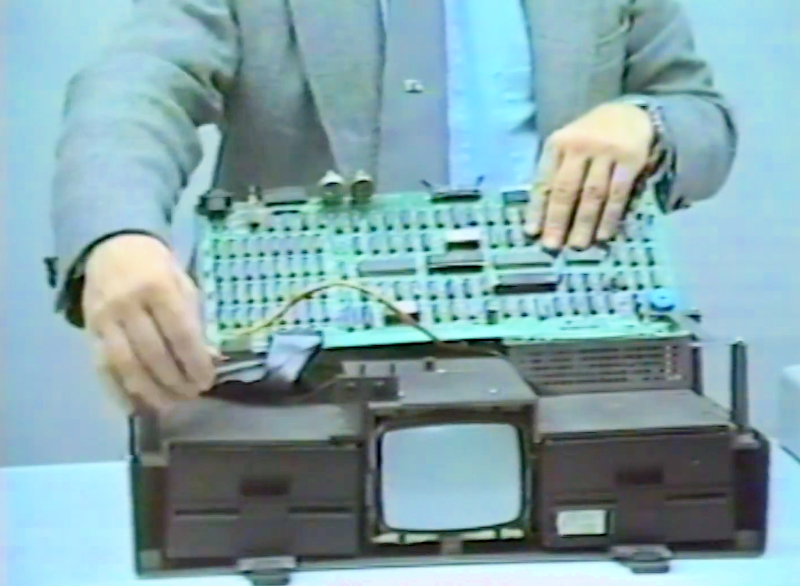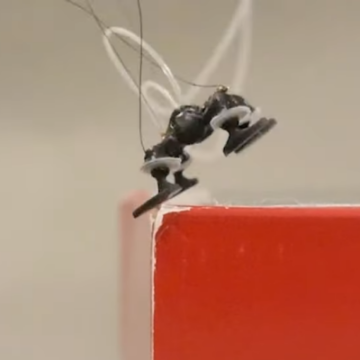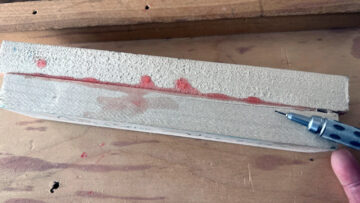
In 1987, your portable Osborne computer had a problem. Who you gonna call? Well, maybe the company that made “The Osborne Survival Kit,” a video from Witt Services acquired by the Computer History Museum. The narrator, [Mark Witt], tells us that they’ve been fixing these computers for more than three years, and they want to help you fix it yourself. Those days seem long gone, don’t they?
Of course, one thing you need to know is how to clean your floppy drives. The procedure is easy; even a 10-year-old can do it. At least, we think [William Witt] is about 10 in the video. He did a fine job, and we wonder what he’s up to these days.
The next step was taking the machine apart, but that required adult supervision. In some cases, it also took a soldering iron. As a byproduct, the video inadvertently is a nice tear-down video, too.
We remember lugging systems like this around. Your phone is worth hundreds or thousands of these old machines and fits in your pocket. But we still love this old iron. There are some pretty advanced repairs covered later in the video like adjusting the drive speed or replacing the keyboard (with slightly older Daniel). The monitors were prone to jitter and that repair is in there, too.
We can’t imagine a computer seller today asking us to drill a hole in the case to attach an external monitor connector. To tell the truth, we kind of miss that. At the end of the video are bits of another video from Witt about building an XT-compatible computer. That was about $30 — quite a bit in the 1980s. We don’t know how much the Osborne video cost.
If you make it to the end of the video, you may have the urge to rewind it before returning it to the rental store. No need, though. It’s YouTube.
We wonder what [Mark] would think of an Osborne 1 case with a Raspberry Pi brain. While the Osborne was the first well-known luggable computer, there were a few other huge sort-of portable computers around that time.
[embedded content]
Thanks [Stephen Walters] for the tip!
- SEO Powered Content & PR Distribution. Get Amplified Today.
- PlatoData.Network Vertical Generative Ai. Empower Yourself. Access Here.
- PlatoAiStream. Web3 Intelligence. Knowledge Amplified. Access Here.
- PlatoESG. Carbon, CleanTech, Energy, Environment, Solar, Waste Management. Access Here.
- PlatoHealth. Biotech and Clinical Trials Intelligence. Access Here.
- Source: https://hackaday.com/2024/03/24/retrotechtacular-right-to-repair-1987/
- :is
- $UP
- 1
- 10
- 800
- a
- About
- acquired
- adjusting
- Adult
- advanced
- also
- an
- and
- Another
- apart
- ARE
- around
- AS
- asking
- At
- attach
- been
- before
- Bit
- bits
- Building
- but
- by
- call
- CAN
- case
- cases
- clean
- company
- computer
- computers
- content
- Cost
- course
- covered
- Daniel
- Days
- DID
- do
- Dont
- drive
- drives
- easy
- embedded
- end
- Even
- external
- few
- fine
- First
- fits
- Fix
- For
- from
- gone
- had
- Have
- he
- help
- history
- Hole
- How
- How To
- HTTPS
- Hundreds
- imagine
- in
- inadvertently
- IT
- Job
- keyboard
- Kind
- kit
- Know
- later
- least
- like
- Long
- love
- machine
- Machines
- made
- make
- mark
- May..
- maybe
- miss
- Monitor
- monitors
- more
- much
- Museum
- Need
- next
- nice
- no
- of
- Old
- older
- ONE
- or
- Other
- phone
- plato
- Plato Data Intelligence
- PlatoData
- portable
- pretty
- Problem
- procedure
- quite
- Raspberry
- Raspberry Pi
- remember
- Rental
- repair
- repairs
- required
- returning
- Rewind
- right
- seem
- Services
- slightly
- some
- speed
- Step
- Stephen
- Still
- store
- supervision
- survival
- Systems
- taking
- tell
- tells
- than
- that
- The
- There.
- These
- they
- thing
- Think
- this
- those
- though?
- thousands
- three
- time
- to
- today
- too
- took
- truth
- us
- Video
- want
- was
- we
- WELL
- well-known
- were
- What
- while
- WHO
- william
- with
- wonder
- worth
- would
- years
- you
- Your
- yourself
- youtube
- zephyrnet












